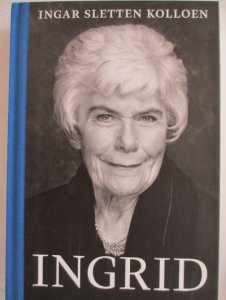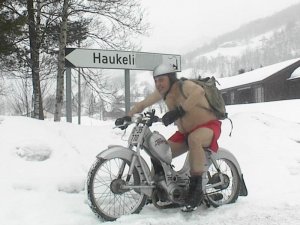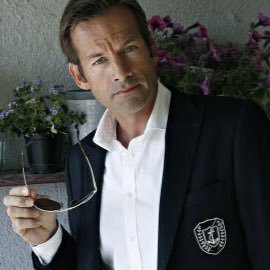Lutefisk!
Politikk, religion og samfunn Hva er det norskeste du kan tenke deg.
Diskusjonstråd Se tråd i gallerivisning
-
Det kommer veldig an på om du spør en etnisk norsk eller en i et annet land feks.
Kompe/komle/raspeballer er iallfall veldig norsk.
Og utad er vi veldig stolte av landet vårt.
Men vi er også "kalde". På bussen setter man seg i ytterste sete og legger bagasjen på vindusplassen, så ingen skal sette seg der. Og er man så uheldig å havne ved vindu med en i nabosetet, så hopper man gjerne over holdeplassen man skulle av bare for å ikke bry sidemannen.Dugnadsånd og organisasjonskultur. Evnen til å klare seg selv, i erkjennelsen av at man også klarer mer sammen med andre.
Om ikke eksklusivt norske, så er det i alle fall verdier jeg setter pris på ved det Norge jeg vokste opp i.- Ble medlem
- 09.04.2014
- Innlegg
- 2.548
- Antall liker
- 791
Tur i skog og mark, med nylaget kaffe på termos, nistepakke, sitteunderlag og passende turtøy.Kanskje er det norskeste vi kan tenke oss i ferd med å forsvinne, og alt vi sitter igjen med er smaken av lutefisk…
Til dømes
https://www.aftenposten.no/meninger...-ja-til-nikab-er-feigt--Inger-Margrethe-LundeSist redigert:HHardingfele
Gjest
Til kommentaren tidligere om at man ikke skal tro man er bedre enn andre, som det norskeste av alt. (Noe jeg finner banalt i forhold til verdier som det å være selvhjulpen/selvberget).
Jeg leste en artikkel nettopp om jeger/sanker vs bondesamfunn. Avsnittet om "å fornærme kjøttet" ga et godt bilde av det å være selvhjulpen og det å tro man er noe.
Før man leser dette: jeger/sankere "jobber" 17 timer i uken og får et kaloriinntak et stykke på 2300/dag.
The study of hunter-gatherers, who live for the day and do not accumulate surpluses, shows that humanity can live more or less as Keynes suggests. It’s just that we’re choosing not to. A key to that lost or forsworn ability, Suzman suggests, lies in the ferocious egalitarianism of hunter-gatherers. For example, the most valuable thing a hunter can do is come back with meat. Unlike gathered plants, whose proceeds are “not subject to any strict conventions on sharing,” hunted meat is very carefully distributed according to protocol, and the people who eat the meat that is given to them go to great trouble to be rude about it. This ritual is called “insulting the meat,” and it is designed to make sure the hunter doesn’t get above himself and start thinking that he’s better than anyone else. “When a young man kills much meat,” a Bushman told the anthropologist Richard B. Lee, “he comes to think of himself as a chief or a big man, and he thinks of the rest of us as his servants or inferiors. . . . We can’t accept this.” The insults are designed to “cool his heart and make him gentle.” For these hunter-gatherers, Suzman writes, “the sum of individual self-interest and the jealousy that policed it was a fiercely egalitarian society where profitable exchange, hierarchy, and significant material inequality were not tolerated.”
This egalitarian impulse, Suzman suggests, is central to the hunter-gatherer’s ability to live a life that is, on its own terms, affluent, but without abundance, without excess, and without competitive acquisition. The secret ingredient seems to be the positive harnessing of the general human impulse to envy. As he says, “If this kind of egalitarianism is a precondition for us to embrace a post-labor world, then I suspect it may prove a very hard nut to crack.” There’s a lot that we could learn from the oldest extant branch of humanity, but that doesn’t mean we’re going to put the knowledge into effect. A socially positive use of envy—now, that would be a technology almost as useful as fire.
(Til sammenligning:
It turns out that hunting and gathering is a good way to live. A study from 1966 found that it took a Ju/’hoansi only about seventeen hours a week, on average, to find an adequate supply of food; another nineteen hours were spent on domestic activities and chores. The average caloric intake of the hunter-gatherers was twenty-three hundred a day, close to the recommended amount. At the time these figures were first established, a comparable week in the United States involved forty hours of work and thirty-six of domestic labor. Ju/’hoansi do not accumulate surpluses; they get all the food they need, and then stop. They exhibit what Suzman calls “an unyielding confidence” that their environment will provide for their needs.)Sist redigert av en moderator:
I Danmark er sykkel også sport. En stor sport faktisk.I norge er sykkel alvor. I for.eks danmark er sykkel et transportmiddel. Tenk om vi hadde kledd på oss i hjelm og kjøredress og kappkjørt i bilen til jobben
Forøvrig synes jeg det er en fin "norsk" ting å kombinere jobbsykling og trim/trening.ZZomby_Woof
Gjest
Jeg har akkurat vært norsk og syklet hjem fra nattevakt. I Spandex...
I Danmark er sykkel også sport. En stor sport faktisk.I norge er sykkel alvor. I for.eks danmark er sykkel et transportmiddel. Tenk om vi hadde kledd på oss i hjelm og kjøredress og kappkjørt i bilen til jobben
Forøvrig synes jeg det er en fin "norsk" ting å kombinere jobbsykling og trim/trening.
Nå restituerer jeg meg med et glass rødvin, det er nok ganske unorsk.665finger
Gjest
Joda poenget mitt var ikke å disse folk som trener til jobb. det gjør jeg ofte selv (i sommerhalvåret) men det faktum at du sjelden ser personer (også barn og ungdom) som bruker sykkel som transportmiddel(dvs i vanlig tøy)
I Danmark er sykkel også sport. En stor sport faktisk.I norge er sykkel alvor. I for.eks danmark er sykkel et transportmiddel. Tenk om vi hadde kledd på oss i hjelm og kjøredress og kappkjørt i bilen til jobben
Forøvrig synes jeg det er en fin "norsk" ting å kombinere jobbsykling og trim/trening.

Det er dumt. jeg vil ha en kombi.
Se på syklistene i Århus kontra Oslo. Det er forskjell type veldig storeSist redigert av en moderator:
Vokst opp på bygda du?Til kommentaren tidligere om at man ikke skal tro man er bedre enn andre, som det norskeste av alt. (Noe jeg finner banalt i forhold til verdier som det å være selvhjulpen/selvberget).
Jeg leste en artikkel nettopp om jeger/sanker vs bondesamfunn. Avsnittet om "å fornærme kjøttet" ga et godt bilde av det å være selvhjulpen og det å tro man er noe.
Før man leser dette: jeger/sankere "jobber" 17 timer i uken og får et kaloriinntak et stykke på 2300/dag.
The study of hunter-gatherers, who live for the day and do not accumulate surpluses, shows that humanity can live more or less as Keynes suggests. It’s just that we’re choosing not to. A key to that lost or forsworn ability, Suzman suggests, lies in the ferocious egalitarianism of hunter-gatherers. For example, the most valuable thing a hunter can do is come back with meat. Unlike gathered plants, whose proceeds are “not subject to any strict conventions on sharing,” hunted meat is very carefully distributed according to protocol, and the people who eat the meat that is given to them go to great trouble to be rude about it. This ritual is called “insulting the meat,” and it is designed to make sure the hunter doesn’t get above himself and start thinking that he’s better than anyone else. “When a young man kills much meat,” a Bushman told the anthropologist Richard B. Lee, “he comes to think of himself as a chief or a big man, and he thinks of the rest of us as his servants or inferiors. . . . We can’t accept this.” The insults are designed to “cool his heart and make him gentle.” For these hunter-gatherers, Suzman writes, “the sum of individual self-interest and the jealousy that policed it was a fiercely egalitarian society where profitable exchange, hierarchy, and significant material inequality were not tolerated.”
This egalitarian impulse, Suzman suggests, is central to the hunter-gatherer’s ability to live a life that is, on its own terms, affluent, but without abundance, without excess, and without competitive acquisition. The secret ingredient seems to be the positive harnessing of the general human impulse to envy. As he says, “If this kind of egalitarianism is a precondition for us to embrace a post-labor world, then I suspect it may prove a very hard nut to crack.” There’s a lot that we could learn from the oldest extant branch of humanity, but that doesn’t mean we’re going to put the knowledge into effect. A socially positive use of envy—now, that would be a technology almost as useful as fire.
(Til sammenligning:
It turns out that hunting and gathering is a good way to live. A study from 1966 found that it took a Ju/’hoansi only about seventeen hours a week, on average, to find an adequate supply of food; another nineteen hours were spent on domestic activities and chores. The average caloric intake of the hunter-gatherers was twenty-three hundred a day, close to the recommended amount. At the time these figures were first established, a comparable week in the United States involved forty hours of work and thirty-six of domestic labor. Ju/’hoansi do not accumulate surpluses; they get all the food they need, and then stop. They exhibit what Suzman calls “an unyielding confidence” that their environment will provide for their needs.)HHardingfele
Gjest
Ja, og jeg ser paralleller.
Hvilken reaksjon tenker du på? Jeg gikk rundt i sentrum på formiddagen den 23. og da var det en helt spesiell stemming der. Dempet og forsiktig, ingen knuffing på fortau og ingen høye stemmer eller gråtekoner, men en følelse av "muffled drums".Den reaksjonen som fremsto etter 22/7 er vel ikke helt vanlig?
Men etterpå gikk det til Rosetog-Helvete. Svært mange var ofre eller nærmeste pårørende til folk som enten døde eller ble alvorlig skadd, mens resten av landet hadde kjærlighets-sørge-event, med kollektiv og offentlig kappgrining I noen dager før man kunne gå videre med sitt. En slags sorg-parasittisme. Ordfører Tomasgard i Sørum mente seg fradømt retten til å være offer: Han hadde nesten rygget på Behring Breivik før sistnevnte tok båten til Utøya, men fikk ikke bistandsadvokat. Anket gjorde han og. Den slags skamløshet hadde kanskje ikke folket i gamledager. Jeg mistenker at folk da hadde evnen til å skjønne når man skulle tre et par steg tilbake og holde kjeft.
https://www.dagbladet.no/nyheter/ordforer-holdt-pa-rygge-ned-breivik-ved-utvika/63436401-Alle våre mattradisjoner og måten de tas vare på- samtidig som vi tar til oss hele verdens kjøkken ellers.
-Dobbelt godkjent skriftspråk
-Værhåndteringen
-Kultur for idrettslig selvhevdelse
-Demokratiet vårt
-Midnattssola en sommernatt nordpåGGjestemedlem
Gjest
- Ble medlem
- 18.02.2009
- Innlegg
- 24.485
- Antall liker
- 15.016
- Sted
- Kopervik og Bergen
- Torget vurderinger
- 1
Konstante forsøk på nasjonal selvironi er kanskje noe vi har arvet fra Monthy Python og UK?Den store troen på seg selv og sine ferdigheter. Bare se på antall kr som brukes på oppussing her og der hvert år, og mye er selvgjort (er velgjort?). DIY'ere med klokkerent selvinnsikt
Yrkesstolthet pleide å være noe veldig norsk, men nå til dags er det vel kanskje ofret til fordel for den amerikanske modellen med at alt skal gjøres billigst mulig i profittens navn.
Selvgjort er velgjort vinagunner, så der har du rett (jeg vet at dette er et stikk til DIY avdelingen)
Hvor trist hadde ikke Norge vært hvis alle var "byråkrater" uten selvsikkerhet nok til å male veggen selv?Som Hurra Torpedo kommenterte da de var på turne i USA: her kjører alle i kliss nye biler, men kjøper hvitevarer fra skraphandelen. Hjemme i Norge kjører alle i steingamle biler, men bytter hvitevarer så ofte det teknisk sett lar seg gjøre.
(fant ikke det korrekte sitatet, så dette er gjengitt slik jeg husker det)
Det er høyt klageandel ifm boligkjøp, så det er nok mer enn veggmaling som blir utført? Byggmakker, Monter, Byggmax, Maxbo osv, samt diverse utleiere av små og store maskiner gjør det bra i Norge.Yrkesstolthet pleide å være noe veldig norsk, men nå til dags er det vel kanskje ofret til fordel for den amerikanske modellen med at alt skal gjøres billigst mulig i profittens navn.
Selvgjort er velgjort vinagunner, så der har du rett (jeg vet at dette er et stikk til DIY avdelingen)
Hvor trist hadde ikke Norge vært hvis alle var "byråkrater" uten selvsikkerhet nok til å male veggen selv?
For all del, pusser opp og herjer selv, jeg!Sist redigert:ZZomby_Woof
Gjest
Det er nå noe særnorsk å eie egen bolig. Jeg synes det er en god ting.GGjestemedlem
Gjest
Så mange misforstår dette med dugnad. Når dugnad blir påkrevet eller obligatorisk så er det ikke lenger dugnad men ulønnet tvangsarbeid.GGjestemedlem
Gjest
Sinte motorsagbrøl fra linjeryddere på tomten i dag. Fikk lapp i postkassen om at de kom. De kommer ikke gjennom hagen men naturdelen, strømmen må frem så jeg stiller meg ikke i veien. En akkurat passe inngripen på privat eiendom til vårt alles felles gode. Min mangel på bevæpnet motstand får være dagens gode gjerning.GGjestemedlem
Gjest
Vi nordmenn er vel over gjennomsnittet glad i britisk humor?Konstante forsøk på nasjonal selvironi er kanskje noe vi har arvet fra Monthy Python og UK?Valentino: Alle de nordmenn som forstår seg på humor, ja- mao alle som helst skulle sett Åpen Post, Brille og Lillelørdag/lignende norsk "humor" bli lempa så langt ut i verdensrommet som overhodet mulig..For min del er det akkurat den underfundige vittigheten britene bruker så bra i egen språkdrakt som - sammen med Egon, Henry og Oluf er selve innbegrepet på gjennomtenkt humor. Trond Viggo, Arve og Arthur er det beste Norge har fostret i så måte En ting til som er typisk norsk er den irriterende trangen noen nordmenn har til å kaste bort hundretimesvis i året på sportsverdenens absolutt største time waster: Fotball. Ja, jeg veit det er et engelsk spill, men det er snooker også. Som i sin tur er ulidelig spennende.
Hardingfele: Personlig tar jeg da heller dansk/engelsk vinter HELT UTEN SNØ OG IS.. Det er et HÆLV... å røre seg utendørs for min del i kommende måneder. Dog , de andre tre årstidene funker i Norge. Skal det være NORSK vinter, gi meg knirkeføre, stjerneklare kvelder og konstant temperatur på femogtyve til førti spik- i to strake måneder..Kombinert med ei stue så varm og innbydende når du kommer inn at istappene under nesa forsvinner på to flate sekunder- med full fyr i peisen og pluss åtteogtyve som innendørs middeltemp.Det kan jeg klareBare jeg slipper stålisen.
Sist redigert:- Ble medlem
- 13.10.2005
- Innlegg
- 21.457
- Antall liker
- 6.882
Damer med snus ser jeg sjeldent i utlandet. -
Laster inn…
Diskusjonstråd Se tråd i gallerivisning
-
-
Laster inn…











